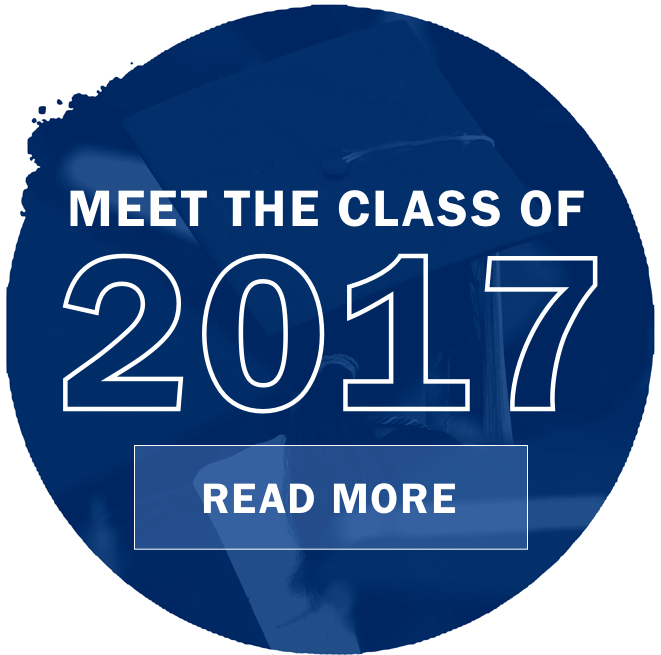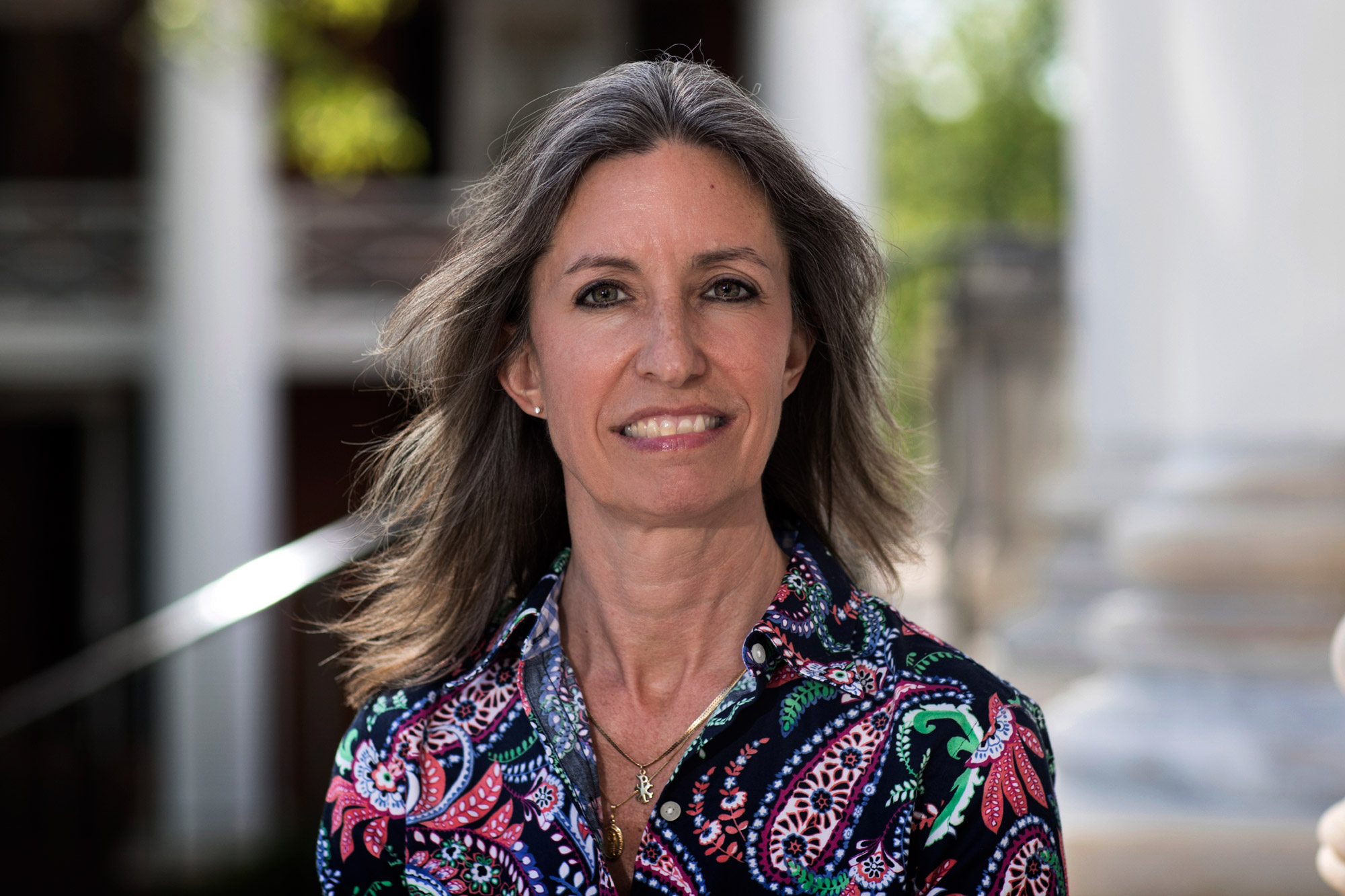After nine years of hard work and patience, Kristin Dinwiddie will finally walk the Lawn on May 20 to take her undergraduate degree in anthropology from the University of Virginia, her employer.
Dinwiddie is a full-time employee in the University’s Office of Property and Liability Risk Management, where she works as a claims manager. Having already earned an associate’s degree in finance from Goldey Beacom College in Wilmington, Delaware in 1987, she knew she wanted to get her bachelor’s degree – just not in finance. Instead, she wanted to study something she was passionate about. It took 21 years, but in the end Dinwiddie realized that an anthropology degree was for her.

She began her UVA educational journey by taking a course through the Community Scholars program in the School of Continuing and Professional Studies, which allows individuals to enroll in on-Grounds courses on a part-time basis without having to apply for a degree.
Once she decided to pursue an anthropology degree, Dinwiddie took advantage of the benefit for University employees that allowed her an education stipend.
UVA Today spoke with Dinwiddie to find out more about her experience as a non-traditional student.
Q. Why did you decide to go back to school?
A. It was something that I had always wanted to do, but I started my career at UVA working in [then-]Dean Ed Ayers’ office in the College of Arts & Sciences. This was way before the renovation of New Cabell Hall! The academic spirit of the University and of the office simply infected me and I knew I needed to start taking classes again. Everyone at the dean’s office was very encouraging and the University offers employees an education benefit. It was an easy decision.
I started by taking one class as a Community Scholar, just to get my feet wet, but once I decided to enroll, I had to apply just like everyone else and write an application essay.
Q. Why did you decide on getting a degree in anthropology?
A. When I was working at the dean’s office, my husband and I ended up taking a trip to Africa for our 40th birthdays. I came back from that and realized that I knew what I wanted to study. Anthropology professor Richard Handler was the dean of the undergrad school at the time and I had gotten to know him quite well in the office and he helped make my decision pretty easy.
When we went to Africa, we stayed in some places that were very Western-oriented. We also did a lot of tours outside into some of the small villages. We went into a Zulu village, and it’s amazing how different their lifestyle is from ours. From our standards, we think they have nothing. Yet the relationships they have among themselves and how welcoming they were to us made me think that there’s so many places in this world that I know nothing about – and that’s a shame. In America, we have a very egocentric idea about our lifestyle, and our country and our culture.
Q. What are the advantages to taking a longer amount of time to get a degree?
A. I didn’t have to lay out much money by using the education benefits for University employees. I also didn’t want the process to be burdensome. I wanted to enjoy getting my degree, so I pretty much just took one class a semester. I did two summer classes, but no winter or [January term] classes.
It took me about nine years. Doing this, you can definitely get a whole lot more out of each class – especially if you’re working full-time. It allows you to balance home life, work life and school life.
I was also able to have a wide spectrum of professors. We have an amazing anthropology department and the professors are inspiring.
Q. What are the disadvantages?
A. For nine years, every time we tried to plan a family trip – even just on the weekends – I’ve had to revolve it around my homework load and whether or not I have class that Friday. So, we’ve rarely taken any vacations or trips in the spring or fall. Honestly, that’s probably the only disadvantage for me.
For younger students, it certainly would be a harder choice to try and work full-time and go to school. When I was getting my associate’s degree, I worked full-time and went to school part-time.
As I sit here now and I think back, I realize that I’ve been trying hard to assimilate and get some of the experiences that you have by being the traditional-aged student. I think it’s critically important. You may not necessarily realize this as you’re going through as a younger student. To try and do the part-time and drag-it-out thing, it’s a completely different experience – regardless of age. I think you miss out on the social interaction and the fun things that college is supposed to be about.

I try to tell my daughter, who’s in college, that she takes things too seriously. You need to enjoy this experience. Certainly, the education and the learning is huge, but you need to be in the moment here and enjoying it.
Q. Do you have any advice for prospective older students and University employees who are considering going back to school?
A. I would like to encourage other employees and staff around the University, even if they just do it through Community Scholars, to dip their toes in the water. After your first couple of classes, being the oldest person in the class and having every student asking if you’re the professor, you build up an immunity to the discomfort and the potential embarrassment. I’ve made some really neat friendships.
Also, the foreign language requirement is a real challenge at my age and I left it to the end of my studies. It’s really a struggle for a person with an old brain to try and absorb a new language. That would be my only other piece of advice: get your foreign language requirement out of the way first so that you can end on a high note.
Q. Do you have any plans for after graduation?
A. I love my job and I love what I do. I’m not going to go do field work in anthropology or anything.
I will probably take a year off. One thing I’ve been a contributor to is Piedmont CASA, which is Court-Appointed Special Advocates for children. When kids have to go to court, whether it’s for domestic violence or something else – not because the kid is in trouble, but because their home life is bad – then they appoint an advocate to speak on behalf of the child. I’ve financially been able to contribute to them, but I’ve never actually been able to volunteer because it’s a huge time commitment and I’ve been taking classes. I think that I’m probably going to do that right after I graduate.
I’m also leaning toward a master’s in higher education from the Curry School.
I’m also planning on going to Chicago. The Field Museum is there and they have an amazing anthropology and archaeology collection there. I thought that would be a neat way to celebrate.
(Editor’s note: This is one of a series of profiles of members of the University of Virginia’s Class of 2017.)
Media Contact
Article Information
May 16, 2017
/content/university-employee-finishes-her-nine-year-journey-undergraduate-degree

